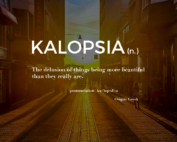If Private Platforms Use Government Guidelines to Police Content, is that State Censorship?
Just under three years ago, Infowars anchor Alex Jones was tossed off Facebook, Apple, YouTube, and Spotify, marking the unofficial launch of the “content moderation” era. The censorship envelope has since widened dramatically via a series of high-profile incidents: Facebook and Twitter suppressing the Hunter Biden laptop story, Donald Trump’s social media suspension, Apple and Amazon’s kneecapping of Parler, the removal of real raw footage from the January 6th riots, and others.
This week’s decision by YouTube to demonetize podcaster Bret Weinstein belongs on that list, and has a case to be put at or near the top, representing a different and perhaps more unnerving speech conundrum than those other episodes.
Profiled in this space two weeks ago, Weinstein and his wife Heather Heying — both biologists — host the podcast DarkHorse, which by any measure is among the more successful independent media operations in the country. They have two YouTube channels, a main channel featuring whole episodes and livestreams, and a “clips” channel featuring excerpts from those shows.
Between the two channels, they’ve been flagged 11 times in the last month or so. Specifically, YouTube has honed in on two areas of discussion it believes promote “medical misinformation.” The first is the potential efficacy of the repurposed drug ivermectin as a Covid-19 treatment. The second is the third rail of third rails, i.e. the possible shortcomings of the mRNA vaccines produced by companies like Moderna and Pfizer.















